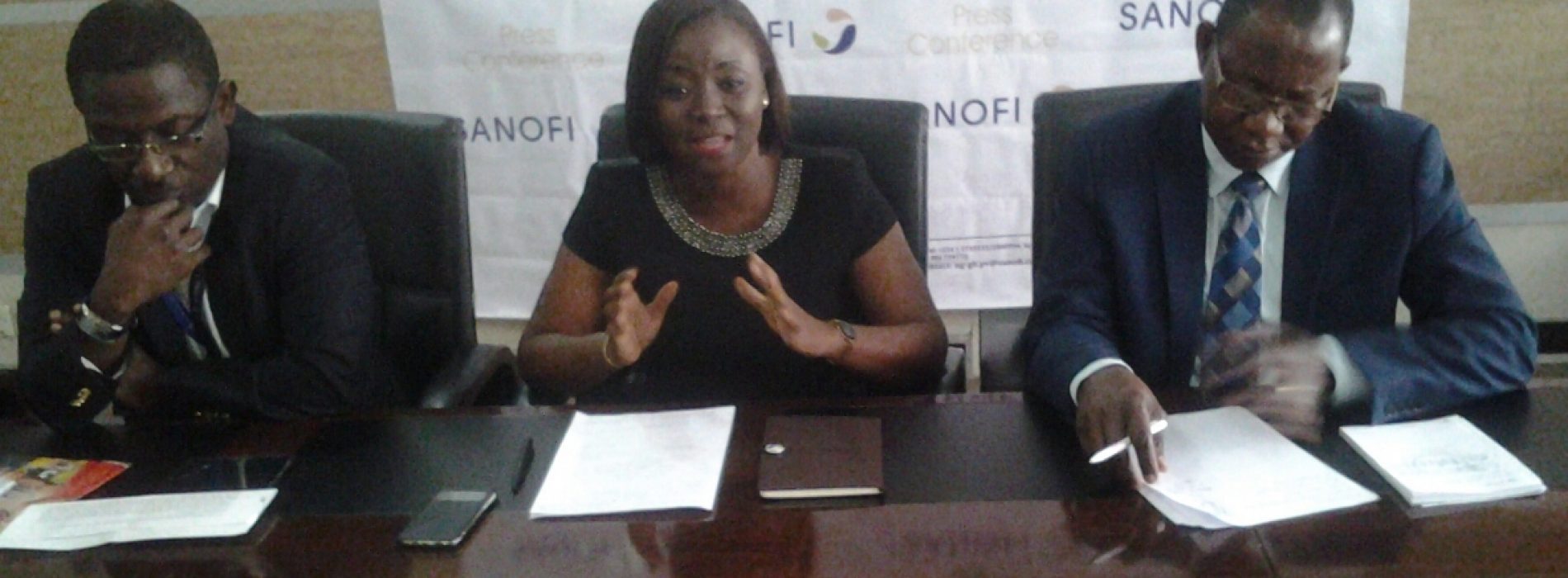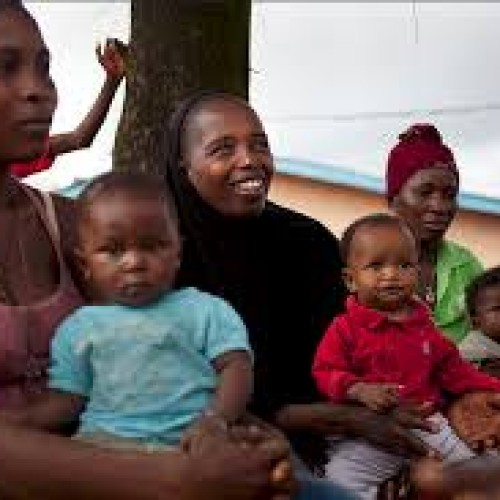Sanofi Diabetes Summit debuts on October 18

Sanofi Nigeria-Ghana officials (from left): Dr. Philip Ikeme, Medical Director, Ms Folake Odediran, General Manager and Country Chair, and Mr. Dimeji Agbolade, External Affairs Director at the press briefing
All is now set for the first Sanofi Diabetes Forum scheduled to hold in Lagos on Wednesday, October 18, General Manager and Country Chair, Sanofi Nigeria-Ghana, Folake Odediran announced earlier today.
Briefing journalists about the summit on Friday, Odediran said the summit which is expected to draw experts from different parts of the world, including Nigeria, is being organised by the company, as part of its social responsibility, to draw the attention of the medical community and the Nigerian public at large to the rapid growing incidence of diabetes in the country.
She described the Summit as an educational platform for diabetes management in view of its heavy burden both globally and locally. According to her, the Summit will also provide a platform where all the people who are involved in diabetes care can come together, rub minds and engage in robust discussions in order to update themselves.
“It is also an opportunity for engagement. In diabetes care, the stakeholders are many, it is not just the doctors, but nurses, among others. The platform will provide an opportunity for various stakeholders to come and listen to the latest trend in the management of this condition and avail this information to the public.
“It will also improve knowledge of care through rubbing of minds by the medical community; best practice will be shared so that patients’ health can be improved,” Odediran further said, adding that the Sanofi Diabetes Summit will give room for the community to recognize that Sanofi is a partner in this condition.
Earlier at the briefing, the Medical Director, Sanofi Nigeria-Ghana, Dr. Philip Ikeme urged Nigerians to pay more attention to diabetes, which he described as a chronic and silent disease with a deadly impact on virtually all aspects of human health.
According to him, diabetes is a leading cause of amputations in the hospital, cardiovascular disease like heart attack, stroke and a major cause of blindness in people above 50 years of age.
Dr. Ikeme said about three years ago, South Africa and Ethiopia tended to have more incidence of diabetes than Nigeria but now, Nigeria has the highest disease incidence in sub Saharan Africa. According to the World Health Organization (WHO), the global incidence of diabetes is estimated at 387 million as of 2014 and Dr Ikeme says this could increase to almost 600 million if nothing is done to check the growing menace of the disease by 2035.
Diabetes, according to him, is not a curable disease though it can be treated and controlled. If well treated and controlled, the patient could live like anyone else. Dr. Ikeme also described diabetes as a disease confers more responsibility of care on the patient than the physician. Thus, the best way to stay healthy is for the patient to adhere to the doctor’s instructions.
Dr. Ikeme lamented that diabetes is a silent disease. “So you don’t hear the noise and there is no warning. By the time it presents, you already have complications,” he said.
He noted that nine out of ten amputations in the hospitals which are not due to accidents are due to diabetes, adding that the problem often start with a small infection in the foot or toe and because it couldn’t heal, it becomes a big problem and the patient’s foot has to be amputated to save his life.
“We also have patients who have cardiovascular diseases, like heart attack in particular and also stroke and blindness as complications of diabetes. Diabetes is one of the leading causes of blindness of people above 50 years of age. This means anybody who has problem of sight should go to the hospital to make sure they are not diabetic. Again, as I said, it is silent as it may present just as an eye problem. You may not have any other symptoms,” Dr Ikeme cautions.
He said the main types of diabetes are basically type 2 and type 1. “Type 2 tends to affects mainly older people; more mature adults but type 1 is predominantly for young children and young adult. So if you look at the burden of type 2, it constitutes 95% or more of all diabetes and type 1 probably less than 5% and the remaining 2 to 3% will be for some other types of diabetes,” he explained.
Dr. Ikeme identified ’nice lifestyle’ as the reasons why more people are coming down with diabetes. “We like to eat good food, sit and watch television all day, we don’t exercise and things like that; that means there is increasing obesity and if there is increasing obesity, your inability to manage your blood sugar becomes a big difficult. Things like this will push us to the diabetic end of the spectrum which means it becomes more and more difficult for us to manage our blood sugar,” he said.
He however challenged everyone to pay attention to such lifestyles, adding that “if one member of your family has diabetes, it is a good thing to make sure that other members of the family also check themselves and make sure they are not diabetic,” he advised.
The External Affairs Director, Sanofi Nigeria-Ghana, Mr. Dimeji Agbolade described the company as a global life sciences committed o improving access to healthcare and supporting the people in all places where it operates.
Apart from manufacturing and distributing quality medicines, the company, according to him, invests heavily in research and transforms scientific innovation into healthcare solutions, in human vaccines, rare diseases, multiple sclerosis, oncology, immunology, infectious diseases, diabetes and cardiovascular solutions and consumer healthcare.
In Nigeria, he said, the country has continued to support healthcare practitioners through professional training to enhance best health care practices and quality care. He disclosed that Sanofi Aventis Nigeria Limited has supported up to 850 doctors and nurses, between 2016 till date.
“We have also partnered with a number of health institutions, in the area of drug safety, we partner with local agencies to ensure that drugs that we market are safe, for instance through the mobile authentication system,” Mr Agbolade further said.”







0 Comments
No Comments Yet!
You can be first to comment this post!